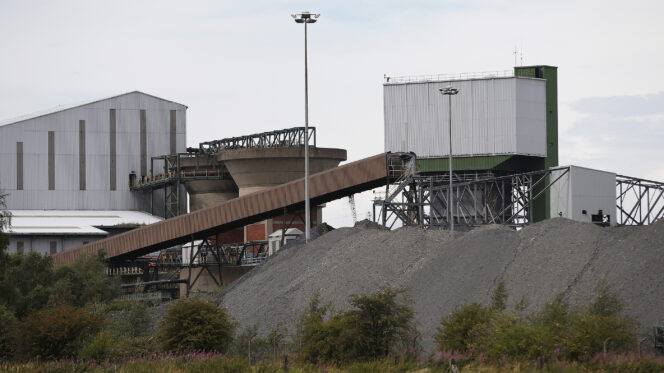‘I’m Not Angry, I’m Disappointed’: What Voters in Reform’s Top Town Really Think
Disillusioned doesn’t mean disengaged.
by Craig Gent
10 June 2024

Westminster media wisdom has it that the projected voters for the rightwing Reform party are either simply “angry” or don’t exist. Yet a visit to the town where Reform needs swings of just 4.5% and 6.3% to secure two seats from Labour suggests otherwise.
“I don’t like either [main] party at the moment. I think they are both just different sides of the same coin,” says Regina, a youthful pensioner, speaking to Novara Media outside a British Heart Foundation shop in Barnsley, South Yorkshire.
“If we have a candidate for Reform, I’m tempted to [vote for them] because I think we need a good opposition.”
Once a mining stronghold, and still home to the headquarters of the National Union of Mineworkers, Barnsley was long thought to be safe ground for the Labour party. Then, in 2019, the town’s MPs – Labour’s Dan Jarvis and Stephanie Peacock – came within around 4,000 and 3,200 votes respectively of losing their seats to Reform’s predecessor, the Brexit party.
Reform “[talks] about the things that ordinary people talk about,” says Regina. “I think that’s what’s missing.”
Regina is passionate about the pension inequality faced by women born in the 1950s. The daughter of a Ghanaian steelworker who migrated to Britain from the Commonwealth as part of the Windrush generation, she longs for “a bit of positivity” in politics and the media.
Regina and her friend Elspeth, who migrated from Scotland to South Yorkshire, say their top political priorities are the NHS, social care, and justice for pension-age women. But they also think politics needs a “good shake-up”.
On this basis, Regina says she welcomes the return of Nigel Farage to the centre stage of British politics, and believes the media was misguided to criticise him for his U-turn on standing at the upcoming general election.
“[Farage] said, ‘Well, I think changing your mind is a strength because it shows that you’ve listened and you’ve reconsidered’,” she says. “I thought yeah, there it is – you know, that’s how you bring your children up.”
The pair say these are the primary reasons they are tempted to vote for Reform, in contrast to assumptions that circulate in the media.
“They just assume that people are [supporting Reform] because they don’t like immigrants,” says Regina. Elspeth puts this down to heightened online discourse, and the way “keyboard warriors” come across.
Both say that while they are concerned about the present level of undocumented or irregular immigration, they are more motivated by concern for the future of the public sector and people’s ability to “get on”.
Yet both are adamant they won’t vote Labour, though they have in the past, citing the party’s record on tax and spend.
“There’s been a couple of times in my life when I’ve needed help [from the state],” Regina explains. She says it’s right that the state supports the worse-off, but Labour is too quick to deem that people have done well enough to be taxed more highly. “We just grew up on council estates, but we were pushed forward, we did the right thing,” she says.
“We worked!” adds Elspeth. The pair explain that they spent much of their lives working in the public sector, as well as in banks, chip shops and stacking shelves.
Neither feels that a vote for Reform would be a vote cast in anger.
“I’m not angry, I’m disappointed,” says Regina.

It’s a view echoed by Roy, who speaks to Novara Media near Barnsley’s sprawling market.
“I think anger probably is not what most people feel about it,” he says. “Disappointment, definitely, and not just in the government, but disappointment in the opposition.
“They’re there to keep the party in power on their toes, and they’ve got the wrong person to do it.”
Even “strong Labour supporter” Bryn, another market shopper, thinks that Keir Starmer’s expected victory has more to do with the Tories’ failings.
“I genuinely thought, when Corbyn made such a pig’s ear of it in 2019, that Labour would not get in again in my lifetime,” he explains. “I think it’s a testament to the incompetence of the Conservative government that it looks like they’re going to lose.”
“I think it’s a mess,” says Roy. “But I don’t think [Labour] is going to be any better than what’s already in.” He says he will vote, but is currently unsure who for. He makes it clear he’s never voted Conservative, but says won’t vote Labour because he “certainly” doesn’t trust Starmer, who he describes as “probably a ham-fisted Tony Blair character”.
“Maybe [with] a different leadership I might be tempted. But it’s anything but democratic at the moment, the Labour party.”
Roy is unsure whether Reform could take his constituency, Barnsley North, citing a strong following for Jarvis, who he says is a satisfactory MP, though they are an option for his vote.
“I went to the rallies for the Brexit party, and they did well,” he says. “But it’s a different ballgame [now].”

Will, a recent music production graduate, is more optimistic, and says he is most likely to vote for Reform. He hopes Farage’s party will benefit from disaffection from both Labour and the Conservatives.
“I think politically both parties sold us down the river a bit.” He says the Tories have lied on defence, tax and immigration, and “Labour has not really been strong enough as a party”.
Will describes himself as financially conservative but socially liberal, with a preference for small government and low taxes, primarily spent on the NHS. To him, Reform is the best-placed vehicle to be a “proper third party” in Britain’s politics, regardless of the number of seats it wins.
Will is articulate and perhaps surprisingly knowledgeable about Barnsley’s vote distribution at the 2019 election for someone who would have been too young to vote in it. He thinks Reform has a good chance of a breakthrough this time around, citing immigration as an issue that “has disproportionately affected working-class towns” where it is more noticeable than in cities because the population is “not as dense”.
Will emphasises that he wants immigration to be reduced rather than stopped, arguing that controlling irregular immigration should be balanced with making it easier to apply to migrate to Britain legally.
“Hopefully … through that you are then offering more jobs to young people,” he says. “It’s too hard for young people to get a decent paying job and then get on to the housing market and stuff.
“I’m not saying it’s necessarily a bad thing that we’re housing them, I just don’t think hotels in working-class towns are the right place to do that.”
I ask why he thinks working-class towns are disproportionately affected.
“I don’t think the upper class … really want these people in their towns,” he explains. “A lot of these people are the same that said, ‘No, that’s fine, you should come in – but as long as it’s not near me.’”
Additional reporting by Thomas Clements.
Craig Gent is Novara Media’s north of England editor and the author of Cyberboss (2024, Verso Books).


